More masks, less haggling: Istanbul’s Grand Bazaar welcomes few customers upon reopening
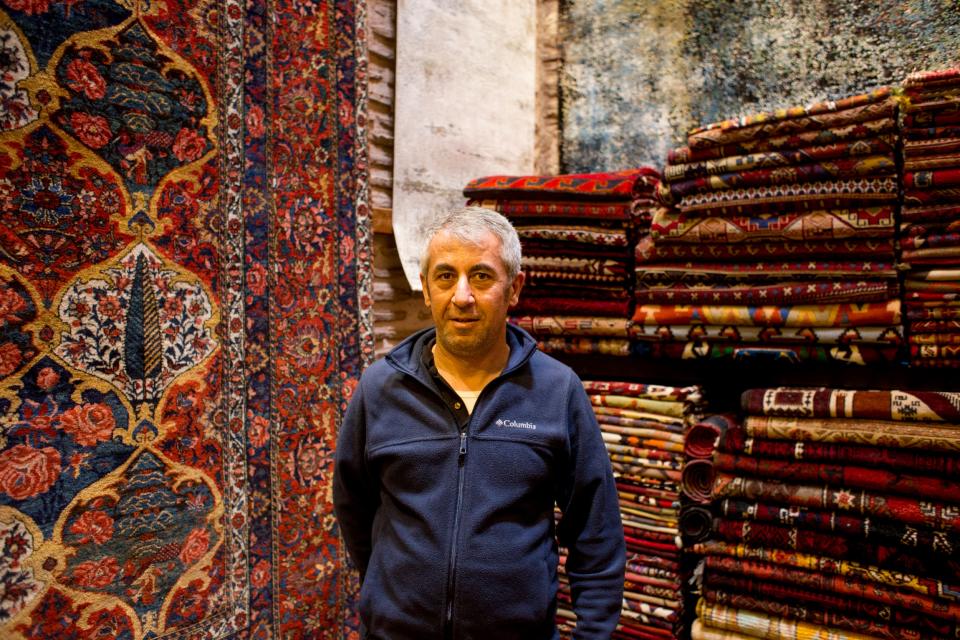
It’s not just about selling rugs. Like most of the vendors at Istanbul’s Grand Bazaar, Ismail Ipek loves to sip tea and haggle with customers eyeing his finely woven and colourful carpets. And on Monday, after more than two months idle and stuck at home because of coronavirus, he returned to the labyrinthine marketplace to reopen his shop. It has been the longest shutdown in the recent history of one of the world’s oldest and most storied marketplaces.
“A lot of people from around the world come here only for the pleasure of bargaining,” says the 36-year-old, alone in the shop. Portraits of him and famous customers, including NBA great Hakeem Olajuwon and Hollywood actor Danny Glover adorn the window display of his store, Rug House. “We haggle, but we also learn about different people, different words in different languages.”
Turkey breathed a sigh of relief on Monday as it began to reopen in earnest after a weeks-long shutdown to stem the spread of coronavirus. Parks, restaurants, cafes, gyms and other businesses were allowed to reopen but with strict measures in place that include social distancing, heavy use of hand sanitiser, and obligatory wearing of masks.
Turkey has also listed intercity travel restrictions. Schools will remain closed until the autumn, but swimming pools, libraries and museums along with youth centres and summer camps are allowed to begin re-opening, which in many cases managers are conferring to put in place plexiglass, hand-cleaning stations and train staff. Mosques opened their doors and resumed collective prayers on Friday. Turkey is also preparing for the summer tourist season, announcing a certification scheme meant to encourage visitors.
At Istanbul’s Grand Bazaar, which sells an array of handicrafts, rugs, ceramics, lighting, spices, foods and antiques, shopkeepers were open for business, but complained there were very few customers. Some 3,500 shops are located in the 15th century covered market, which employs some 20,000 people and typically draws 300,000 customers a day.
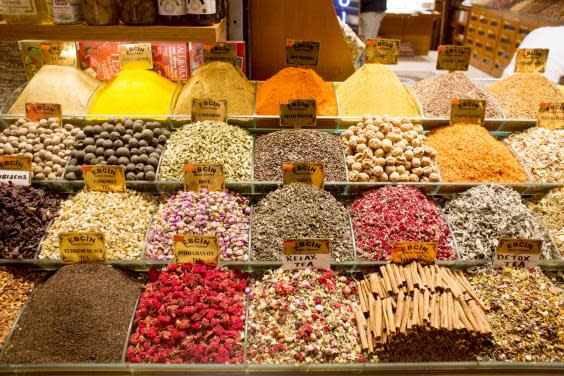
“Everybody is eager to reopen because the economy is stopped right now, and it’s very threatening to people’s livelihoods,” says Ahmet Kokler, president of the Grand Bazaar Association, which represents shopkeepers. “Everyone wants to work.”
Basil Riyad, a 27-year-old Syrian was sprucing up a shop selling candies, nuts and spices at the marketplace down the hill from the main Grand Bazaar. “It feels good,” he says. “Life is coming back.”
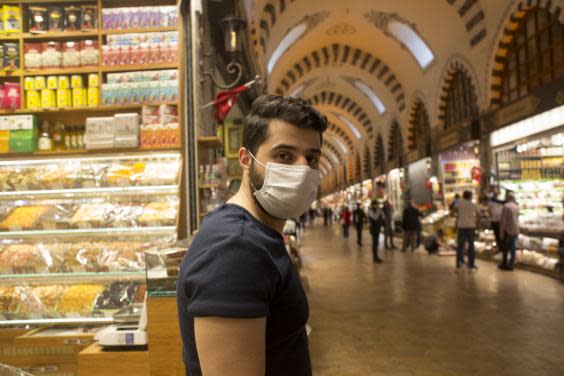
Almost all the shops appeared to be open, and as morning rains turned into afternoon sunshine, more customers were coming, though few were buying. “No one is even spending 10 lira (£1.20),” says Mr Riyad.
We’re just a little scared. We are indoors, and as you can see, there are so many people here and we’re all very close to each other
Munir Palabiyik, worker in family-run handicrafts shop
Those entering the marketplace must submit to a quick temperature check by a police officer or security guard. Customers all wear masks and are allowed to handle the goods, and there is hand sanitiser and high-alcohol Turkish perfume called “colonia” widely available.
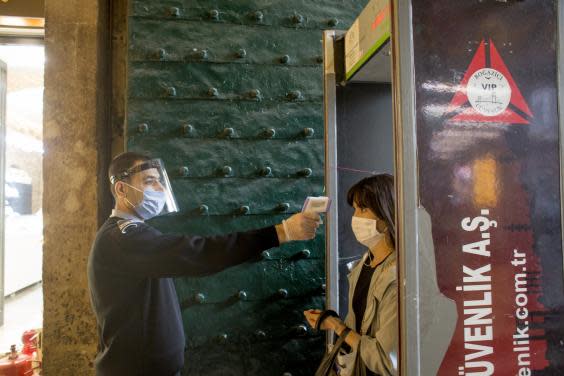
Though customers and personnel were wearing masks as required, social distancing remained difficult to maintain in the bazaar’s cramped alleyways.
“We’re just a little scared,” says Munir Palabiyik, a 25-year-old working at his family’s handicrafts shop. “We are indoors, and as you can see, there are so many people here and we’re all very close to each other.”
At least 4,540 people have died of Covid-19 in Turkey and around 163,000 have been reported infected, with about a 1,000 new cases and between 20 and 30 deaths per day.
We’re not expecting much business for quite a while. Not until international flights start in a couple of weeks
Ahmet Ozturk, spice market owner
Businesses in the bazaar struggled to survive even before the pandemic struck. Rents for even a tiny shop of 5 or 10 square meters run $5,000 (£4000) a month. Tourism slowed following several terrorist attacks in Istanbul and a 2016 coup attempt that stunned the country, but had been picking up before the pandemic. Turkey welcomed 45 million tourists last year.
Landlords have given tenants breaks on rent to keep businesses from going under. Ahmet Ozturk, a Turkish-British dual national and third-generation owner of a shop in the spice market said it will be some time before business returns. They purchased very small amounts of goods from their wholesaler, who was also happy to hear from them.
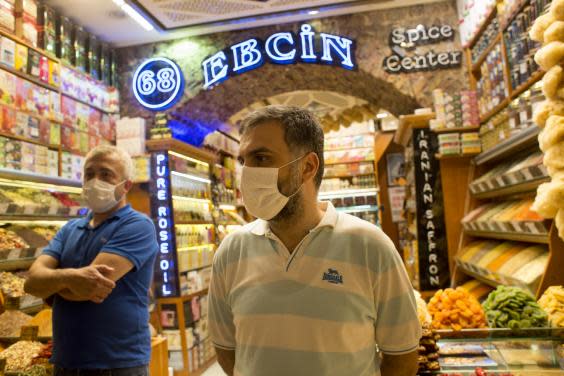
“We’re not expecting much business for quite a while,” he said. “Not until international flights start in a couple of weeks.”
Turkish tourism authorities are taking the lead in promoting a healthy tourism scheme that includes certification for hotels and airlines attesting to their adherence to anti-coronavirus measures. Some businesses hope cheap prices and a soft Turkish lira will draw tourists back.
Asked if he would lower the price of his rugs to attract more customers, Mr Ipek feigned offense, shifted into haggling mode and immediately retorted, “but the prices are already discounted.”

 Yahoo News
Yahoo News